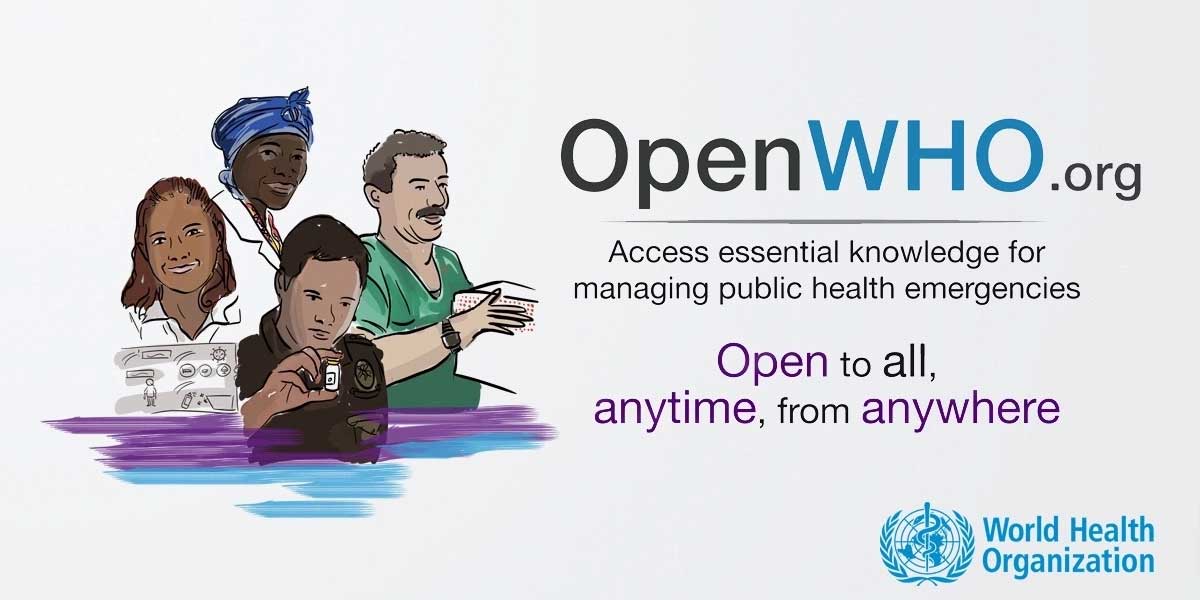
Empowering health workers, decision-makers and the public with trusted knowledge about immunization is critical to protecting people from vaccine-preventable diseases. Health professionals need this knowledge to safely and effectively administer vaccines, leaders rely on it to inform health policy, and individuals depend on it to make decisions about their own health and the health of their families.
That is why the World Health Organization has developed a suite of online courses addressing key vaccination topics on its free learning platform OpenWHO.org. Courses are available in national and local languages and can be taken at each learner’s own pace, all at once or across several sittings, to enable access for as many people as possible.
As we celebrate World Immunization Week from 24-30 April, we welcome you to enroll in the following OpenWHO courses and share them with your networks. Vaccines save lives — and so can knowledge.
COVID-19 vaccine courses
- COVID-19 vaccination training for health workers: All health workers involved in implementation of COVID-19 vaccination need to have adequate knowledge and skills in order to ensure safe and efficient COVID-19 vaccine administration. The COVID-19 vaccination training for health workers package is developed for frontline health workers in countries. The package, developed in collaboration with UNICEF, consists of 6 modules, which include video lectures, quizzes, job aids, interactive exercises and downloadable presentations with the available information.
- Orientation to national deployment and vaccination planning for COVID-19 vaccines: The Access to COVID-19 Tools (ACT) Accelerator’s Country Readiness and Delivery workstream has released guidance on developing a national deployment and vaccination plan (NDVP) for COVID-19 vaccines. This course is intended to help national and sub-national focal points in countries develop the NDVP and prepare for COVID-19 vaccine introduction.
- COVID-19 vaccine-specific resources: Health workers involved in deployment and implementation of COVID-19 vaccination require vaccine-specific knowledge to ensure safe and efficient vaccine delivery. This training provides key information about COVID-19 vaccines through short instructional videos, vaccine explainers, job aids, topic briefings and downloadable presentations.
- Learning how to use the COVID-19 Vaccine Introduction and deployment Costing (CVIC) tool: The CVIC tool is the WHO-UNICEF tool designed to assist countries in the process of planning and costing COVID-19 vaccination. The aim of this course is to demonstrate the use of the CVIC tool. The course is targeting national programme managers and personnel who have been involved in the costing, budgeting or financing processes of COVID-19 vaccine delivery in a country.
- Discover your leadership moment: The pandemic has revealed deep structural and systemic issues in our society. From equity issues to people’s loss of trust in institutions evidenced by vaccine hesitancy, the need for a different approach to leading consequential change is evident. How do we mobilize people to tackle complexity, while holding them through uncertainty towards a better future? This course aims to start you on your leadership journey to do just that!
Additional immunization topics
- Vaccine safety basics: This course introduces participants to the foundations of vaccine pharmacovigilance. The aim of this course is to provide healthcare professionals whose work involve vaccine safety issues, with essential knowledge about vaccines and their safety aspects. These professionals can include nurses, midwives, community health workers, as well as pharmacists, medical doctors and immunization programme or vaccine safety communication officers.
- Inequality monitoring in immunization: Ensuring universal access to immunization promotes better population health and improved outcomes across diverse aspects of development. Unfortunately, however, the benefits of vaccines are spread unevenly. Monitoring inequality in vaccination coverage is a way to identify where inequalities exist and where disadvantaged subgroups stand in terms of access to and utilization of health services. This course introduces the general steps of inequality monitoring in immunization, which should be an integral part of a country’s immunization programme.
- Influenza prevention and control: This course focuses on tools that can be used to prevent and control influenza. These tools include: seasonal influenza vaccines, diagnostics and therapeutics.
- Recognizing and managing anaphylaxis: Anaphylaxis is a severe, immediate allergic reaction. Symptoms that can be life-threatening can occur within seconds to minutes, rarely hours, after contact with the allergenic substance including medicines and vaccines. This course provides practical guidance to frontline health care providers and also vaccinators with key information on its identification, differentiating it from other clinical conditions such as fainting and other stress-related responses. It also provides step-by-step guidance on the case management at the site of the event and the process of referral.
- Flutool Plus – using the WHO Seasonal Influenza Immunisation Costing Tool: Flutool Plus is the WHO tool designed to help lower- and middle-income countries in the process of costing of seasonal influenza immunisation programmes. The aim of this course is to promote the dissemination and use of Flutool Plus. The course is meant for national programme managers, who are responsible for mobilizing resources to set up sustainable immunisation programmes for seasonal influenza.
- Pandemic influenza vaccines: National deployment and vaccination plans: National deployment and vaccination plans for pandemic influenza vaccines are national tools which ensure that during a pandemic, processes and structures are functional so that vaccines are rapidly deployed and administered to target populations. The existence of a national deployment and vaccination plans for pandemic influenza vaccines is also a pre-requisite in the request process to access vaccines from WHO secured stockpiles. The learning package consists of 10 modules, which include video lectures and downloadable presentations that have been updated with the latest information and developments to help countries develop or revise their national deployment and vaccination plans.
Click here (https://openwho.org/courses/) to access OpenWHO courses in additional languages, as well as courses addressing related public health topics, including introductory courses on 28 diseases.





















